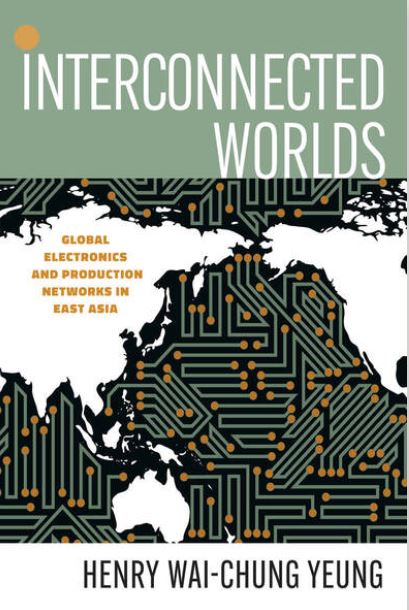Chips war? Global production networks and geopolitics in the post-pandemic world
Speaker:
Henry Wai-chung YEUNG, Distinguished Professor, Department of Geography and GPN@NUS Centre, National University of Singapore.
This talk is co-sponsored by the Economic Geography Research Group of the RGS-IBG
Time: Wednesday, December 13 from 13:00-15:00
Location: Hybrid - School of Geography Common Room, Queen Mary University of London, Mile End campus & online via Teams

Main event:
Based on his forthcoming chapter on semiconductors in Global Value Chain Development Report 2023 (Oct 2023) and recent monograph Interconnected Worlds (Stanford University Press, June 2022), this presentation offers some key empirical observations on the highly contested and politicized nature of semiconductor global production networks since the US-China trade war and the Covid-19 pandemic. In this capital-intensive manufacturing industry, governance and power dynamics are manifested differently from many other industries due to highly complex technology regimes, production network ecosystems, and, more recently, geopolitical imperatives. While some of these critical dynamics had been in play ahead of the 2020s, their intensity and significance became more apparent by the early 2020s. He then examines their most significant implications for macro-regional development in the post-pandemic 2020s: (1) continual significance of East Asia as a major centre and end market, (2) pro-ecosystem approach to capability development, supply ecosystems, and market access in regions, and (3) strategic partnership with technology leaders towards building national and regional resilience. He ends with a discussion of some relevant future research agendas on technology, resilience, and politics for the geographical studies of global production networks and global value chains.
About the speaker:
Professor Henry Yeung is Distinguished Professor at the Department of Geography, National University of Singapore. As a leading academic expert in global production networks and the global economy, his research interests cover broadly theories and the geography of transnational corporations, East Asian firms, and developmental states. He is the first geographer based in Asia to receive both the 2018 American Association of Geographers Distinguished Scholarship Honors (“in recognition of his extraordinary scholarship and leadership in the discipline”) and the UK’s Royal Geographical Society Murchison Award 2017 (for “pioneering publications in the field of globalisation”). In November 2022, he was conferred the 2022 Sir Peter Hall Award for Lifetime Contribution to the Field by the Regional Studies Association in London: “acknowledging and celebrating excellence in the field of regional studies”. Professor Yeung has published 7 monographs and 1 textbook (3 editions), 7 edited books, 110 journal articles, and 50 book chapters. His latest books are Theory and Explanation in Geography (RGS-IBG Book Series, Wiley, September 2023) and Interconnected Worlds: Global Electronics and Production Networks in East Asia (Innovation and Technology in the World Economy Series, Stanford University Press, Stanford, June 2022). His previous monographs are Strategic Coupling: East Asian Industrial Transformation in the New Global Economy (Cornell Studies in Political Economy Series, Cornell University Press, 2016), and Global Production Networks: Theorizing Economic Development in an Interconnected World (with Neil Coe, Oxford University Press, 2015). For two decades since 2001, Professor Yeung has been editor of two top journals in Geography – Economic Geography and Environment and Planning A. He is also past editor of Review of International Political Economy (2004-2013) and serves on the editorial boards of 19 other journals.